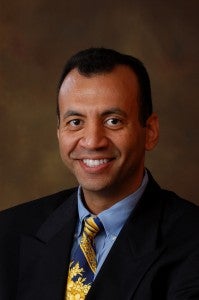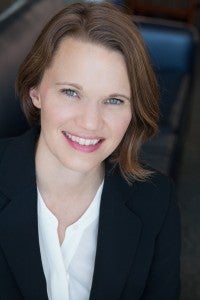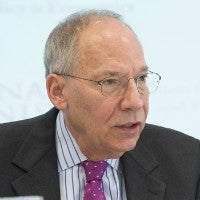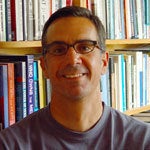#Election2016: Problems with Polls, Voter Mindset, the rise of Super PACs, Health Care’s Cadillac tax, and Pope Francis vs. Trump
Public opinion polls throughout the 2016 presidential race have told at times conflicting stories about the candidates.
Contact: Emily Gersema at (213) 740-0252 or gersema@usc.edu
___________________________________________________
Public Opinion Polls
“The biggest mistake that people make when they see public opinion polls is that they’re designed to predict the future outcome.”
Dan Schnur is the executive director of the Jesse M. Unruh Institute of Politics at USC Dornsife College of Letters, Arts and Sciences, which conducts the Dornsife/Los Angeles Times poll. Schnur is a campaign strategist and polling expert who has insight into how primary participation can help or harm a candidate.
Contact: (213) 740-8964 or schnur@usc.edu
___________________________________________________
Voter mindset
 Public opinion polls indicate voters are gravitating to two extremes, but their candidate preferences could easily shift later in the presidential race.
Public opinion polls indicate voters are gravitating to two extremes, but their candidate preferences could easily shift later in the presidential race.
“There are two systems for decision-making. System 1 is known as the descriptive system. It’s the hot, emotional system. System 2 is the normative system, and it’s a cool, slow deliberate system for making decisions.
“When people are fed up with an environment, they tend to be emotional and operate in a system 1 mode. Also, when the media mentions a name a lot, whether in a positive or a negative way, it anchors people to the name. Anchoring is a decision-making bias, and many people are falling into the trap of anchoring or repeating what is in their salient memory.
“Many of the candidates are making the mistake of talking to people on a system 2 level, but the people are on a system 1. When people are talking about their favorite football team, or religion, do not talk to their system 2. It has been proven with neuroscience that when people are talking about their favorite football team, they’re activating a different part of their brain than when they’re solving a math problem.”
Ali Abbas is director of the USC Center for Interdisciplinary Decisions and Ethics jointly housed by the USC Viterbi School of Engineering and the USC Price School of Public Policy. He is a professor for both schools.
Contact: aliabbas@usc.edu
___________________________________________________
Campaign finance trends
 The U.S. Supreme Court’s 2010 decision on Citizens United v. Federal Election Commission has resulted in the emergence of many “super PACs” – large political-action groups which raise money for various political purposes, including to assist candidates they support.
The U.S. Supreme Court’s 2010 decision on Citizens United v. Federal Election Commission has resulted in the emergence of many “super PACs” – large political-action groups which raise money for various political purposes, including to assist candidates they support.
“One of the more interesting stories this election cycle is that money — particularly outside money — does not necessarily translate into votes. This is probably for a couple of reasons. First, money given to outside groups simply does not go as far as contributions, because outside groups have to pay retail rates for advertising. Secondly, having a large campaign war chest necessarily means that a candidate has widespread support.
“However, the same is not true for outside groups. A $100 million purse at a super PAC could be provided by one person, who only has one vote. A $100 million campaign budget, by definition, comes from at least 18,500 people giving the maximum contribution, and probably many more since most people give far less than the maximum contribution.
“Even though money doesn’t necessarily translate into votes, it does help to secure access to candidates, which could very much translate into preferential policies. Political scientists have shown that donors get more access than non-donors. In other words, money doesn’t buy votes, but it certainly could buy policies.”
Abby Wood is an assistant professor of law, political science and public policy at the USC Gould School of Law. She is available for radio, online and print interviews.
Contact: Abby Wood at awood@law.usc.edu, or Gilien Silsby at (213) 500-8673 or gsilsby@law.usc.edu
___________________________________________________
Affordable Care Act’s ‘Cadillac tax’
 Some candidates have said they intend to stop the “Cadillac tax” — a tax on expensive employer health plans.
Some candidates have said they intend to stop the “Cadillac tax” — a tax on expensive employer health plans.
Paul Ginsburg, a USC expert on health care policy based in Washington, D.C., said this tax, set to go into effect in 2018, may not be dead, despite candidates’ promises.
“Until recently, that idea had more support from Republicans than Democrats. But under the environment of the tax extenders legislation, where fiscal discipline was suspended, Republicans joined with those Democrats long opposed to the idea to delay its implementation. It appeared as though Republican desire to oppose President Obama blinded them to what was in their long-term interests.
“The Cadillac tax may not be dead, though. Fiscal discipline may return soon, and a major flaw in the Cadillac tax was corrected in the provision that delayed its effective date.”
Ginsburg is the director of public policy for the USC Schaeffer Center for Health Policy and Economics, holds the Norman Topping Chair in Medicine and Public Policy, and is a professor at USC Price School of Public Policy. He was recently named chair of the new Leonard D. Schaeffer Chair in Health Policy Studies at Brookings, where he will also direct the Center for Health Policy.
Contact: paul.ginsburg@usc.edu or call Emily Gersema at (213) 361-6730
___________________________________________________
Religion and immigration
 On a recent visit to Mexico, Pope Francis spoke against building a wall on the border – a proposal made by candidate Donald Trump on the campaign trail.
On a recent visit to Mexico, Pope Francis spoke against building a wall on the border – a proposal made by candidate Donald Trump on the campaign trail.
“As we predicted at the beginning of the year, Donald Trump took on Pope Francis during his trip to Mexico, keeping himself in the headlines during the first few primaries. The incident highlights the sharp contrast between Pope Francis’ message of hope and mercy and Trump’s overwhelmingly fearful and violent rhetoric.”
Richard Flory is the director of the research and evaluation for the USC Center for Religion and Culture at the USC Dornsife College of Letters, Arts and Sciences.
Contact: (213) 740-2155 or rflory@usc.edu



